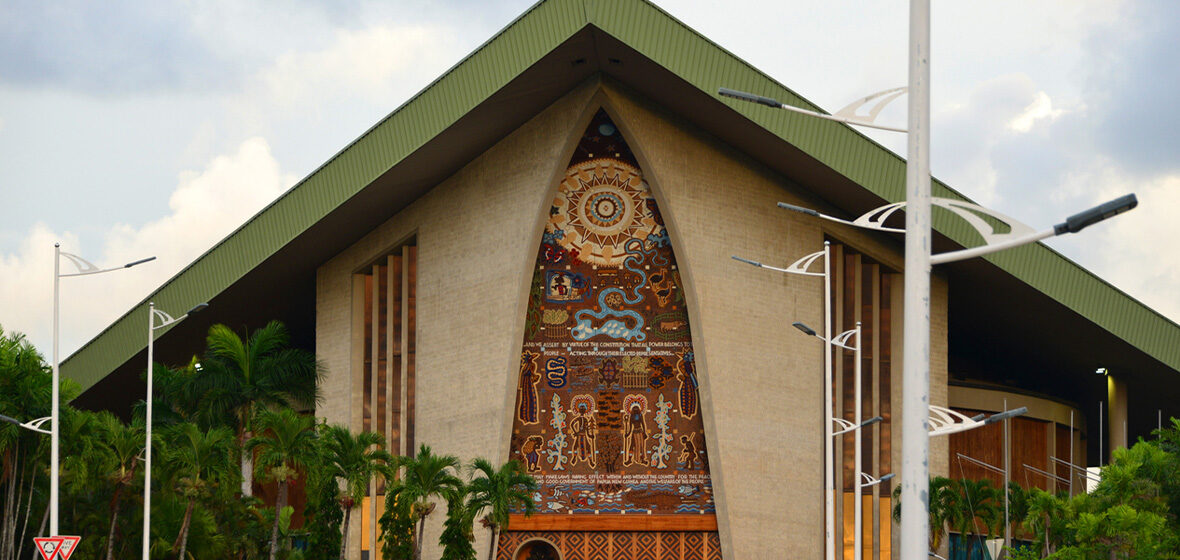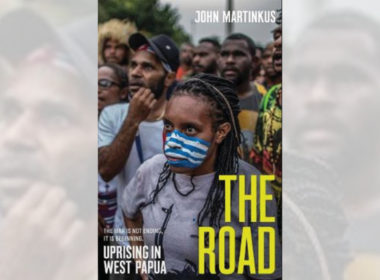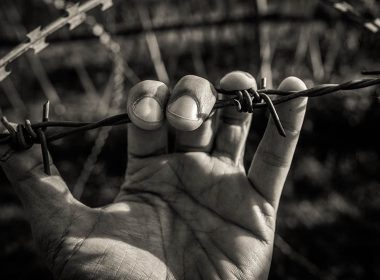The career of author and Emeritus Professor David Weisbrot has spanned law, academia and public policy. His leadership roles include a decade as President of the Australian Law Reform Commission, and another key point in his career has been advising on law reform in Papua New Guinea. His recently published book records his views.
Author and Emeritus Professor David Weisbrot has carved out a peripatetic and intriguing career, spanning law, academia and public policy, and studded with awards and acclaim. He received a Centenary Medal from the Australian Government in 2003 for services to law reform, and in 2006 was made a Member of the Order of Australia (OAM) for service to the law in the areas of law reform, education and access to legal services.
A key point in his career has been his work relating to Papua New Guinea (PNG), “one of the most remarkable places on Earth”. He recently co-authored a book on law in PNG, the culmination of many years of interest in the country.
Across continents to Papua New Guinea
Weisbrot’s journey to that country traversed continents.
“I was born in Israel,” he says. “My Canadian father and American mother met in a training camp for city kids working in a kibbutz. Becoming disillusioned with kibbutz life, they returned to America, to New York, when I was about a year old. I grew up there and studied at Queens College, University of New York.”
In the early 1970s, he graduated with a Bachelor’s degree in Political Science and Communications from Queens College, City University of New York.
Though Weisbrot was offered places at other prestigious law schools, he opted to study his Juris Doctor degree at UCLA because of its pioneering clinical programs. In 1974, his interest in PNG drew him to work within the Office of the Legislative Counsel of the Congress of Micronesia in 1974.
“UCLA published the [Asian American] Pacific Law Journal and had Pacific outreach programs. One of my professors, who had been in the Peace Corps in Micronesia, said, ‘I’ve got two jobs going in Micronesia. It doesn’t pay well, but you’ll have the time of your life.’ I wound up going to the Congress of Micronesia, the local parliament, and I loved everything about it.”
In mid-1975, Weisbrot passed the bar exam. Though he received countless job offers, it was a telegram from the University of PNG (with tickets and a visa), and the offer of a lectureship, that won out over the competition.
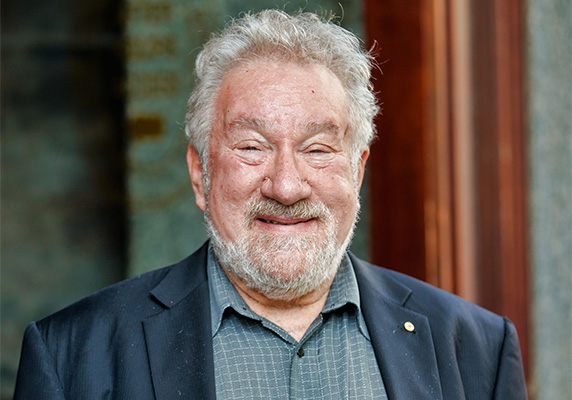
Weisbrot’s academic career began in 1976 at the University of PNG, and he was Dean of Law from 1978–79.
Part of the team
“It was challenging, but it was a fantastic experience,” he enthuses.
“My girlfriend, now my wife, came with me, which made it a lot easier. It was a slightly scary prospect to be going to a developing country where I didn’t know a soul. Then, within minutes of our arrival, a couple of Papua New Guineans showed up to ask if we played basketball. Of course it was my favourite sport, since I’d grown up in New York! They invited me to play on their team and to coach, so that smoothed things a lot. I had local friends and support to learn the language.”
He was hired only a few months before independence was declared in September 1975.
“There was a huge sense of optimism around the university. Students often talked about themselves as the future leaders of the country, and they were right. PNG is a bit wild when it comes to crime and law and order, but I never had any problem in the four or five years we lived there, either through good luck or because I was so well known in the sporting and other communities.”
A life in the law in Australia
In 1979, Weisbrot moved to Sydney, joining the UNSW Law School, where he remained until 1990. In that decade, he co-founded the Indigenous Law Centre and also co-founded, together with Nobel Laureate and East Timor President Jose Ramos-Horta, the International Diplomacy Training Centre.
“One day, I got a knock on my door and it was Jose Ramos-Horta. He’d been at the UN as the representative of Timor [during the period of Indonesian occupation of East Timor from 1975–1999]. He said he had all these great contacts and he wanted to set up a body that would train Indigenous people in Australia, and around the Asia Pacific region, in how to express themselves. He was 100 per cent right that we needed the centre, and it actually happened. He’s never to be underestimated.”
From 1999, Weisbrot was President of the Australian Law Reform Commission (ALRC).
“I had worked as a consultant at another law reform Commission, the PNG Law Reform Commission, before I came to Sydney. There are no independent, non-partisan law reform commissions in America, where everything is so polarised.”
Weisbrot’s involvement with the ALRC was a high point in his career. His decade in the role established him as the longest serving president in the history of the ALRC, almost a year more than the term of office of Michael Kirby AC CMG. It was Kirby who introduced him to the ALRC.
“He contacted me to talk about Indigenous customary law and about whether I’d join the advisory committee, and that’s when I got involved with them,” Weisbrot says. “It was well-funded, with sufficient time and resources, and it had a central commitment to community consultation, so it wasn’t the old-fashioned law reform of just a couple of judges getting together. The DNA of the organisation was, ‘let’s find out what the thoughts are of people who are confronted with these specific issues, and what innovative ideas they have about it’.”
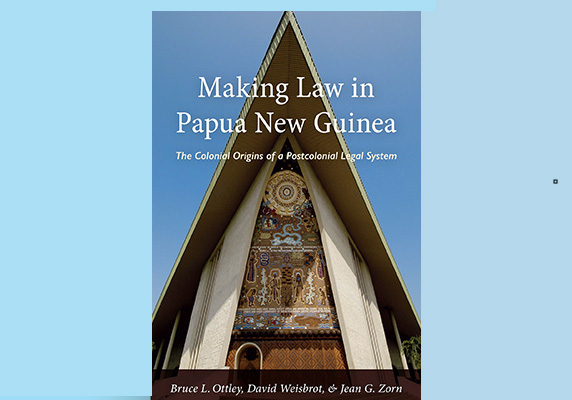
An inherited colonial legal system
Throughout this time Weisbrot retained his fascination for and interest in PNG, and in 2021 his book Making Law in Papua New Guinea: The Colonial Origins of a Postcolonial Legal System, co-authored with Bruce L. Ottley and Jean G. Zorn, was published.
The book queries why PNG, like other postcolonial nations, has maintained the colonial laws and institutions imposed upon it pre-independence.
“The democratic principle is that people should accept the law because they consented to it either directly or as part of the democratic process,” says Weisbrot.
“The legitimacy of the system is based on inclusion: that people have accepted that laws have been made and enforced in their name because they have been represented in parliament or the equivalent. In PNG, that wasn’t the case. They inherited a colonial legal system that was set up as a pale imitation of the Australian legal system,” he says.
“In Australia, we have jury trials for serious things, and all kinds of institutions that weren’t available there. From the point of legitimacy, there was no acceptance of this as law.
“Western law is based on individuals, but Melanesian law is based on family and clan. Resolution of disputes is mostly zero sum in Western societies, but in Melanesian society it’s about compromise, because we have to get along after this is over. It’s no good for one person to be a winner and the other to feel aggrieved. In the lead-up to independence there was a consistent call across political parties for a Melanesian way rather than this colonial legal system.”
Resolution of disputes is mostly zero sum in Western societies, but in Melanesian society it’s about compromise, because we have to get along after this is over.
The many reasons the “Melanesian way” didn’t come to fruition are explored in the book, but Weisbrot ultimately feels that the lack of investment by consecutive Australian governments is a tragedy. He hopes the book is read by those who wish to apply the lessons learned in Melanesia to advancing Indigenous law in Australia, Maori law in New Zealand, or Inuit law in Northern America.
“Having lived and travelled extensively in PNG I think it’s one of the most remarkable places on Earth. It has the most languages of any area on earth; it’s got vast mountain ranges, beaches and islands,” says Weisbrot.
“When I first arrived in Australia, most people knew PNG because their families were involved in WW2 and fought in PNG, or people had travelled there as university students. There’s not much knowledge now and that’s true of most Pacific nations. People holiday in Vanuatu or Fiji but they know nothing of the culture or politics.”
“There’s a failure in our politics and public service to establish relationships between Australia and the Pacific Nations. It took China setting up treaty relations with the Solomons to instigate Australia’s interest.
“Our approach for decades was benign neglect. In avoiding being seen as evil colonisers, we also ignored those nations … There’s a palpable anger in the Pacific about Australia’s lack of attention to climate change. Even though the current government is slightly more attuned to it, it’s not enough. If sea levels rise, these countries will simply disappear. They’re crushed that Australia doesn’t see that as their number one obligation.”

